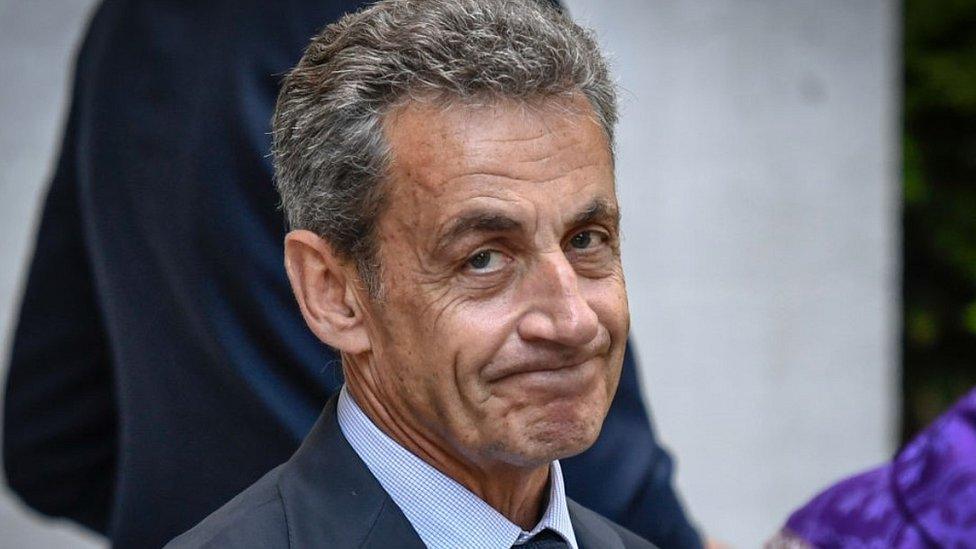Is France ready for Sarkozy's return to the political frontline?
- Published
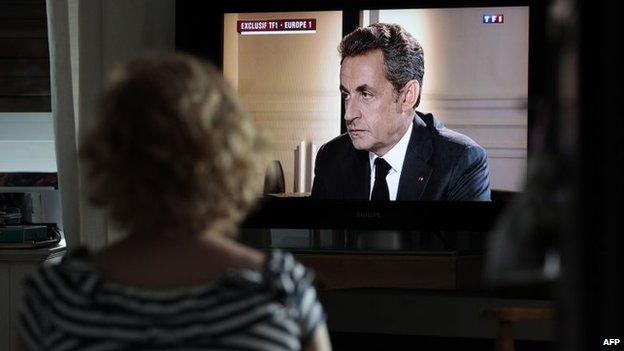
French media report that more nine million people tuned in to watch the interview
He's back. A day after Nicolas Sarkozy's seething self-defence on national television, that is the conclusion of most political pundits in France.
The former president has been out of the public eye for more than two years. But all that time he has been plotting his comeback. The only question was when.
Now the decision has been made. The judges who placed him under investigation for corruption forced him to take a stand.
Either he could submit and wait to clear his name or he could strike back - and in so doing return to the political frontline. He took the second option.
"What he did in the interview was call on the French as witnesses, and say - look how I am being made a victim by the manoeuvres of my opponents. What choice do I have but to respond?" said Thierry Borsa, editor of Le Parisien newspaper.
"In plain language, that means he is back on campaign. He didn't say it openly, but I can tell you: his return to frontline politics starts today."
Guarded response
For journalists and France-watchers, it is a happy prospect. For years Nicolas Sarkozy has been by far the most interesting and exciting figure in French politics.
Controversial, certainly. But he draws attention. He makes news.
How far the French themselves will welcome back the man they bade farewell to in 2012 is another matter.
Nicolas Sarkozy retains a loyal following within his UMP party, but even within the centre-right there are signs that his popularity has been waning.
Polls suggest that he remains the favourite candidate to take over the party when it holds its congress in November. But his lead over former Prime Minister Alain Juppe is slim, and getting slimmer.
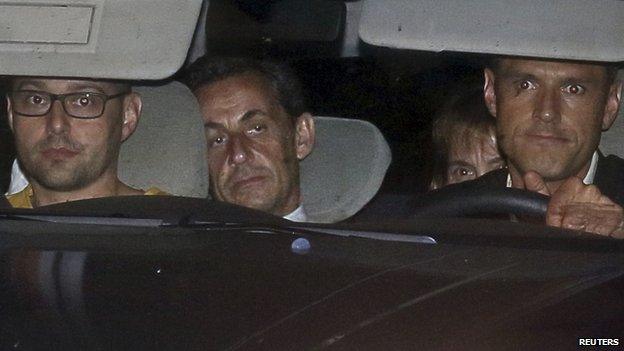
Mr Sarkozy is the first former French head of state to be held in police custody
Indeed it has been noticeable through the drama of the last three days how - outside of the true Sarko-faithful - reactions to his plight from the UMP have been pro-forma and guarded.
Many in the party fear Mr Sarkozy alienates more people than he attracts; others have by now pledged themselves to different candidates; and all are worried at the prospect of a leader liable to stand trial for corruption.
If even in the UMP party there is doubt about a Sarkozy comeback, across the nation that doubt turns to serious misgiving.
In a poll published on Thursday, 65% of those asked said they did not want their former leader to come back to public life. Only 33% were in favour.
And in another survey published in Le Parisien, 63% said they did not believe that Nicolas Sarkozy was the victim of a politically-motivated campaign.
In other words most people in France do not appear to believe the former president when he says that left-wing elements in the judiciary - with the knowledge of the Socialist government - are trying to take him down.
The clue is in the beard
Admittedly that poll was taken before his characteristically impassioned television performance on Wednesday evening.
And it is in such appearances that Sarkozy is at his most effective.
A lawyer by profession, he is expert at making a point and hammering it home. Many will have watched the interview and thought: "Well, yes it is a bit odd that one of the two judges who charged him belongs to a left-wing magistrates' trade union that openly says he is a bad man."
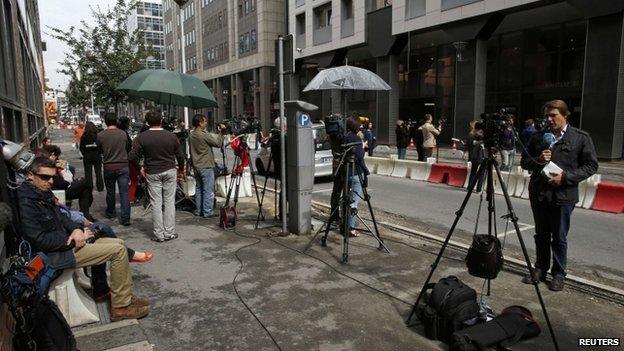
Journalists see Nicolas Sarkozy as an exciting and at times controversial figure in French politics
Already the French media is noisy with the sound of argument.
How dare he impugn the independence of the judiciary? says one camp. It is a classic lawyer's tactic to divert attention from the charges.
On the contrary, the other camp hits back: If you cannot see how deeply the establishment has always hated Sarkozy, then you understand nothing of France.
If it is true that he has made up his mind to step back into the public arena, then the chatter can only get louder.
One trivial detail may provide a clue.
A few months ago, pestered by friends who wanted to know when he would return to politics, Sarkozy told them to "watch my beard".
Since losing the 2012 election he has sported a fashionable three-day stubble. It seemed to suggest he was still enjoying his downtime, happy to look on, but not be in.
For Wednesday night's television interview, Sarkozy was clean-shaven.
He is back.
- Published29 March 2018
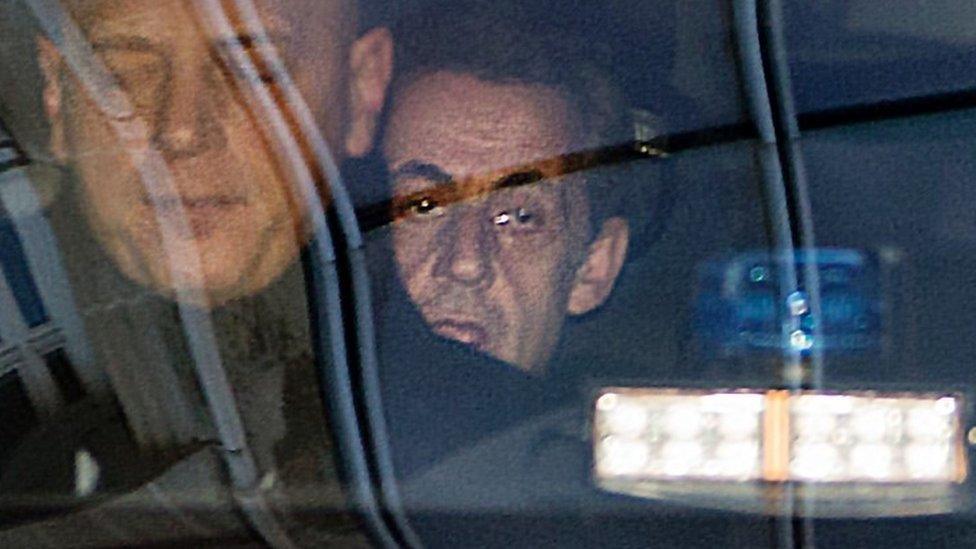
- Published2 July 2014
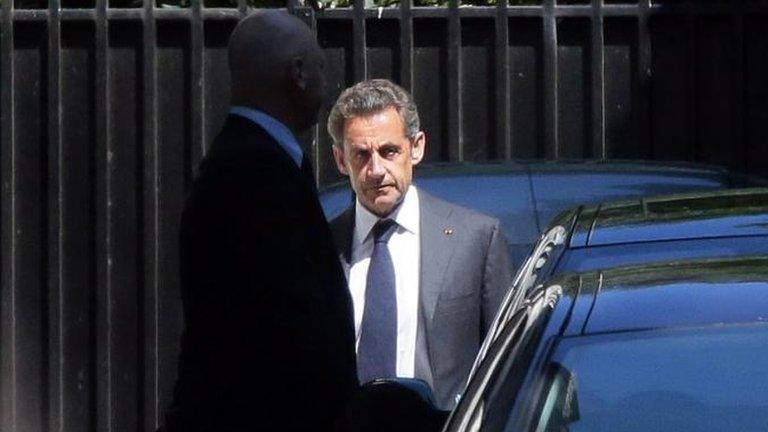
- Published1 July 2014
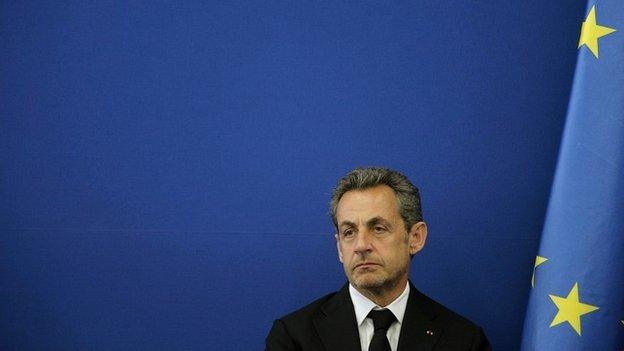
- Published8 January
